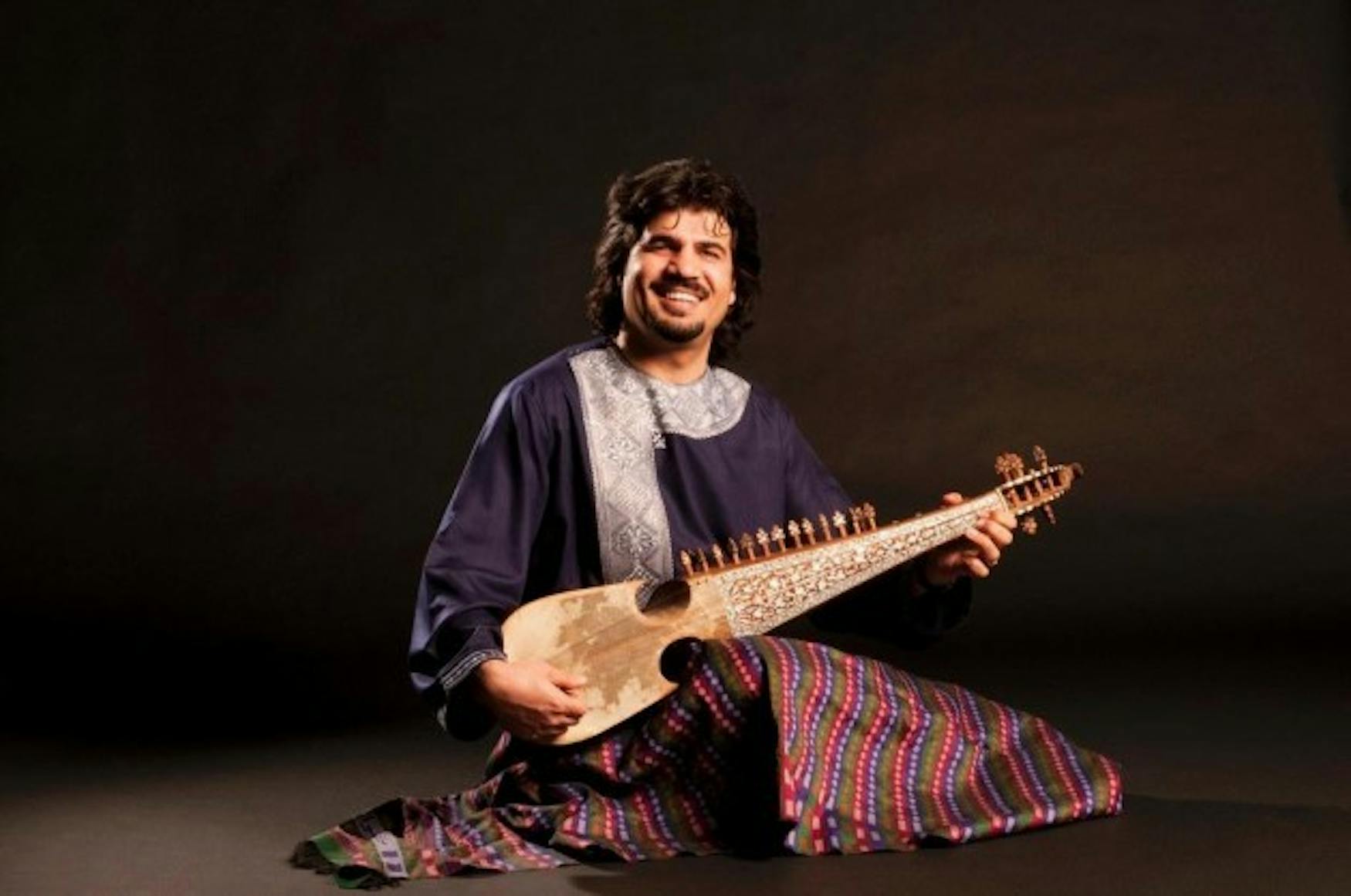Visiting musicians will share the tradition of raga with the community
Twice a year, Prof. Judith Eissenberg (MUS), director of MusicUnitesUs holds a residency highlighting the music of a region or culture outside of the U.S.
From March 6 to 10, in what promises to be one of its finest residencies, MusicUnitesUs will bring three master musicians for a week-long residency titled "Improvisations—Raga from Afghanistan and North India."
In an interview with justArts, Eissenberg said that, "Traditional raga involves three elements: a soloist, a drone and a drum. But this concert offers something very special—we will have a subgenre: the jugalbandi, which literally means ‘intertwined twins.' We will have two soloists who will play together, at times taking turns, at times competing, at times entwined in a fused exploration of musical possibilities. In another way, this is an auspicious musical moment. … These twins, the North Indian sarod and the Afghani rubâb are cousins, ‘separated at birth' and brought together for a night on our stage in Slosberg."
The musicians involved in the residency are Humayun Sakhi from Afghanistan on the rubab, Salar Nader, an Afghani from Germany, on the tabla (drum) and Ken Zuckerman, from the United States on the sarod.
Each of the players has an unique and fraught history. Both Sakhi and Nader were forced to immigrate due to conflicts in their homelands. Sakhi left Kabul after the Taliban government censored and banned some forms of music. He developed his style of performance while in a refugee camp in Pakistan. He eventually met Nader in Freemont, Calif. Zuckerman, on the other hand, did not grow up hearing traditional Afghani music. Rather, he fell in love with the sarod after hearing a concert.
As someone from Pakistan, whose grandparents emigrated from India in 1947, I can certainly understand combining different elements and nationalities and our shared heritage, especially since the first image of Afghanistan and Pakistan in the U.S. is not of a heritage of art and culture but of radicalism and terrorism
Eissenberg said that, "The events of 9/11 changed my relationship to music. Before, I was mainly involved in my own tradition—Western-based, including jazz, some popular and the European classical. After 9/11, I questioned the value of music in a world that seems on the brink of disaster. I challenged myself to find ways music might make a difference. I think we need to see the value of the other. We need to treasure our differences. I agree with science, that diversity is key to human survival. Because humans are hard-wired for music—and I believe we are—I think music can help us learn about and treasure our differences."
Eissenberg is clearly very passionate about her work. She added, "Each musical tradition conveys its cultural and social value; all you need to do is listen. That's the wonder of music."
The residency will culminate in a concert in Slosberg on Saturday, March 10 at 8 p.m. Tickets for students are only $5, and I hope to see you all there. The audience will share in a communal heritage together, and hopefully it will come to understand the complexity of each our cultures.



Please note All comments are eligible for publication in The Justice.